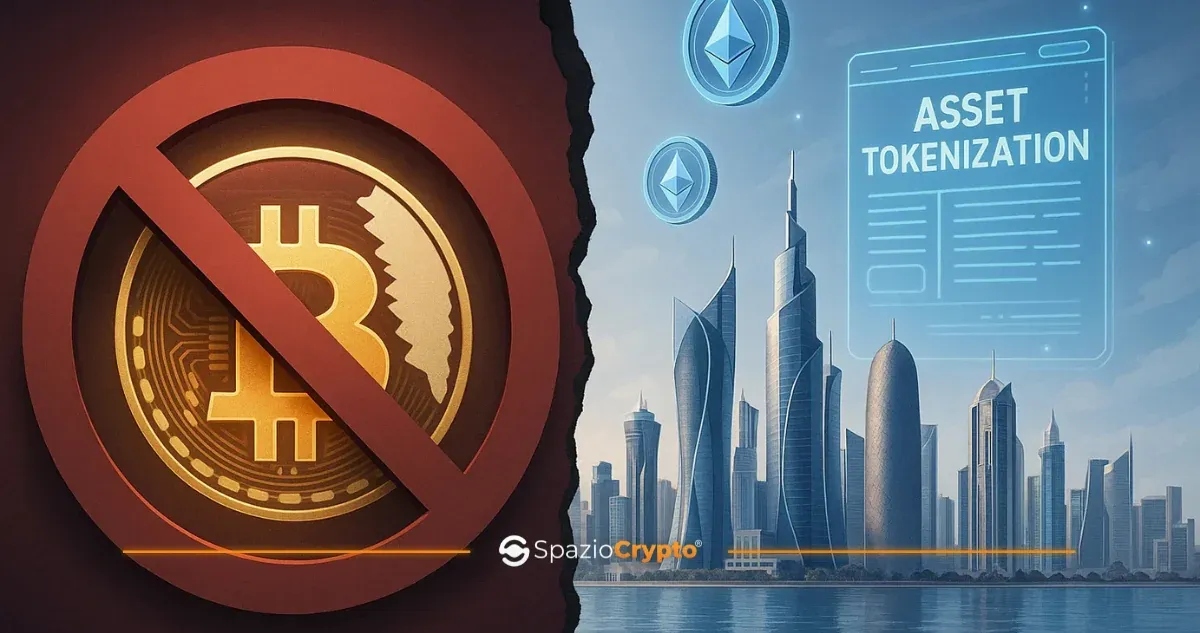Although Qatar maintains a strict official stance against trading and speculative investment in cryptocurrencies, the country is making significant progress in the broader area of digital assets, particularly in the tokenization of assets. During a recent roundtable in the Gulf, financial officials highlighted Qatar's cautious but proactive commitment to blockchain innovation through regulated channels.
Cryptocurrency Ban Remains, But Innovation Advances
During a recent roundtable in the Gulf, financial officials reiterated Qatar's commitment to blockchain innovation while maintaining a cautious and heavily regulated approach.
Yousef Al Jaida, CEO of the Qatar Financial Centre (QFC), confirmed the central bank's ban on cryptocurrency trading and investment. This also includes a ban on the use of financial services for cryptocurrency transactions. However, Al Jaida stressed that this regulation does not limit innovation in the digital asset sector.
Qatar is focusing its efforts on tokenization of real assets rather than speculative cryptocurrency markets. The QFC has established a regulated legal framework for the creation of digital financial products through its Digital Asset Regulation and Investment Tokens Rulebook 2024.
Tokenization as a Strategic Economic Tool
According to Al Jaida, tokenization is a concrete solution to economic challenges, particularly in the private equity and real estate sectors. Qatar is digitising illiquid assets such as bonds, commercial buildings and Islamic financial instruments through tokenized SPVs (special purpose vehicles).
This approach aims to reduce risk within the QFC regulatory framework, expanding access to investments and bringing liquidity to key sectors. It also allows for controlled experimentation in a regulated sandbox-like environment.
Stablecoins Attract Attention in the Region, but Not Yet in Qatar
Other Gulf countries are adopting stablecoins, despite Qatar not yet having regulation in place. Stablecoins are increasingly being used in the region for commercial transactions, freelance payments and remittances, according to Ola Dudin, CEO of crypto platform BitOasis.
Dudin pointed out that a separate regulatory strategy is needed for these uses compared to speculative trading in bitcoin. However, there was no mention of an imminent regulatory change by Qatar regarding stablecoins.
Gulf Regulators Push for Coordination and Passporting of Digital Assets
Another topic discussed by the speakers was the importance of regulatory coordination across the Gulf. Emmanuel Givannakis, CEO of the Abu Dhabi Financial Services Regulatory Authority (FSRA), cited international regulatory frameworks, such as the IOSCO rules on virtual assets, as essential tools for regional harmonisation.
In line with this view, Al Jaida proposed that Gulf financial centres such as ADGM (Abu Dhabi), DIFC (Dubai) and QFC (Qatar) should take the lead in developing 'passporting' arrangements. This would discourage activities on unregulated platforms and facilitate the operations of authorised firms in the digital asset sector across jurisdictions.








